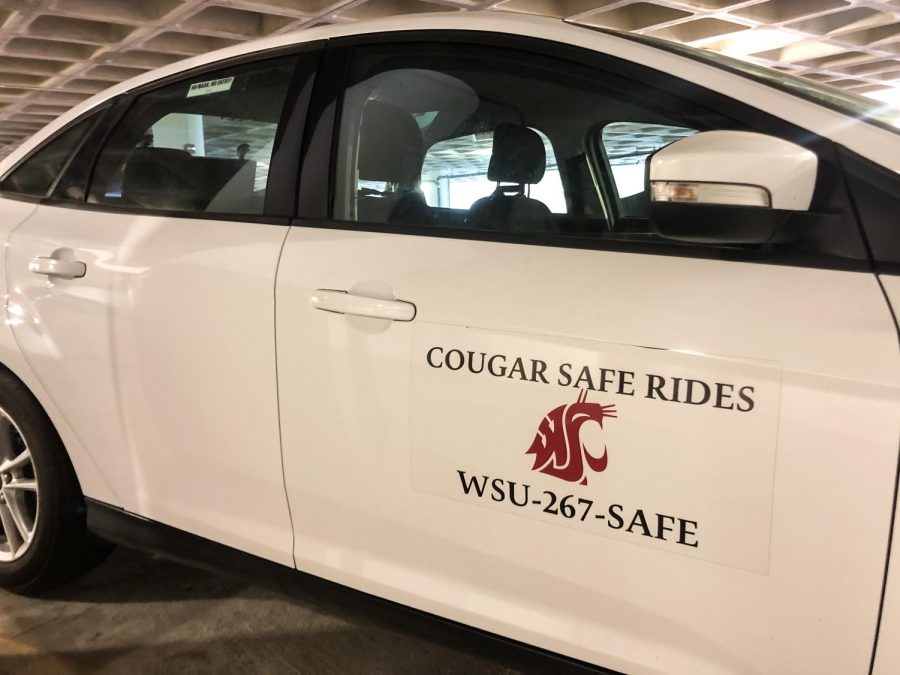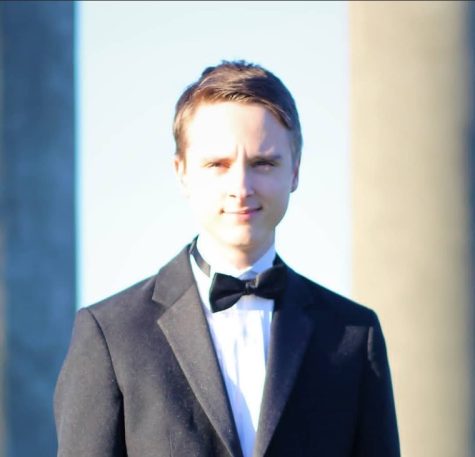Cougar Safe Rides gathers support from students
Students involved with Cougar Safe Rides create a petition and collect testimonials in response to S&A cuts
May 28, 2023
Editor’s Note: Dorothy Greenhalge, one of the student organizers mentioned in this article works at the Daily Evergreen, but was not involved in any editorial aspect of this story
Students involved with the Cougar Safe Rides service are rallying students to help bring to the administration’s attention the importance of the service in response to Services and Activity Fee cuts for next semester.
Cougar Safe Rides plans to return to its earlier operation schedule of three days a week instead of seven, according to a Daily Evergreen article
Women*s Center director Amy Sharp oversees Cougar Safe Rides’ operations. She said this effort is mostly being led by students Dorothy Greenhalge and Teann Manser.
“It’s mostly them,” Sharp said. “A lot of our leadership were seniors so they won’t be coming back the next semester.”
Sharp said it was near the end of the school year when the effort began to gain traction.
Senior biochemistry major Manser said Cougar Safe Rides is funded through the Women*s Center, which took a cut in funding with the change in S&A fees.
“The Women*s Center gets a lump sum of money and all of that’s split between Cougar Safe Rides and things like their digital media team and I think five or six student organizations,” Manser said. “The petition was created by Dorothy to kind of quantify the amount of people who use Cougar Safe Rides, need it, and think it’s essential to remain safe on campus.”
The main ways Cougar Safe Rides has been trying to draw attention to this issue is through a petition and a Google form to collect testimonials from those who have used the service and would say that it has helped them. The petition has received two signatures thus far.
“Safe rides prevent sexual assault and drunk driving without a financial barrier to entry, making it accessible to all who made need it,” the petition reads. “The signatures collected here will be used to demonstrate why ample Cougar Safe Rides S+A allocations are necessary.”
Manser said a main goal of the petition is to encourage the university to recognize Cougar Safe Rides as a serious resource that is important to students. She encourages those who are invested in Cougar Safe Rides remaining a viable service to consider signing the petition.
Manser said it is difficult to drive this effort forward when Cougar Safe Rides is not in operation and there are few people on campus, but she said she believes the movement will pick up steam once students return to campus.
“I think that the petition will probably be brought to the limelight when the service is missing,” Manser said. “I think it will be pretty grassroots right now, but I think next semester will be a big reckoning when people see the differences in the service.”
In the end, Manser said she believes managing Cougar Safe Rides should be a university-run resource and not a student-run one because the university promotes it as an available resource and it is important to make sure it is run correctly.
“Maybe the university has to set aside some money to give to Cougar Safe Rides because it’s not just running dispatch and tracking where the cars go, but also training people to become volunteers and all of this other stuff,” she said. “That can’t fall on 20-year-old people to do, this is like a full-time job.”
Senior architecture major Theodore Clarke said he has been with Cougar Safe Rides since the fall of 2018. He has been one of the leaders of the program and will be leaving this summer once he finishes with school.
“I started in the program initially just because I heard about it and thought it would be a good idea to help out, I realized our program is a sexual assault program and it makes a big difference,” Clarke said. “We’re not a taxi service, we don’t do rides to commercial locations. We really focus to make sure students get home or get back to campus safely.”
Clarke said Cougar Safe Rides’ budget is under the Women*s Center, which will have to operate on a budget, decreased from their previously $60,000 budget by $20,000. This will have a severe impact on Cougar Safe Rides‘ ability to operate as a viable resource.
“The reality is, we’re unclear what the fall is going to look like,” Clarke said. “The operating cost for just three days a week is well above $30,000, accounting for everything from getting background checks for our volunteers to getting proper maintenance for our vehicles.”
Clarke said that unless extra funding is available to Cougar Safe Rides, it is possible that they will be unable to return during the fall.
“I understand the university is struggling with a lower enrollment rate,” he said. “What I don’t understand is why are other places getting an increase in funding or why can’t we all just take a smaller cut than what Safe Rides is given?”
Clarke said he hopes students who are concerned about the future of Cougar Safe Rides continue to make their thoughts clear to the administration. He and the team know what they are doing is important, but hopes the administration will see that in time, he said.
“The cost of one student’s out-of-state tuition could provide rides for 4,000 students a year; if they could just recognize that and make changes to our budget, we would never have an issue like this,” he said.










